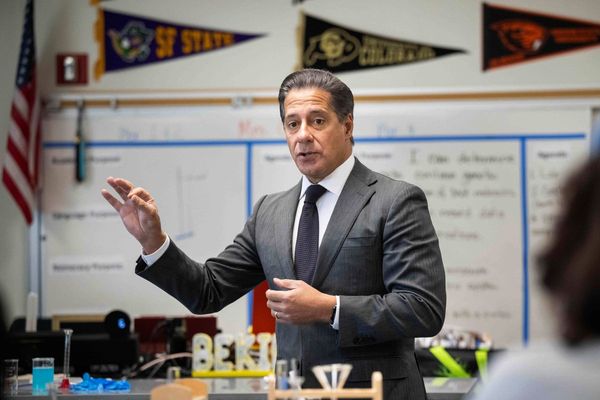In a U-turn, the government on December 15 reversed its decision to ban the use of sugarcane juice for making ethanol as it allowed utilisation of the juice as well as B-heavy molasses to produce the green fuel but capped the diversion of sugar at 17 lakh tonnes.
For now, the capping will be in place for the 2023-24 supply year that ends in October next year.
Also read | Understanding India’s ethanol blending policy
The latest decision comes a week after the government prohibited the use of sugarcane juice and sugar syrup for making ethanol, amid the industry seeking reversal of the decision.
"The flexibility has been given to sugar mills for using both sugarcane juice and B-heavy molasses within an overall cap of 17 lakh tonnes of diversion of sugar for making ethanol in the ongoing 2023-24 supply year (November-October period)," Food Secretary Sanjeev Chopra told PTI.
A committee of ministers took the decision on Friday and the notification in this regard will be issued soon.
‘Proportion to be worked out’
"We are working on the modalities to decide on the proportion of cane juice and B-heavy molasses to be used for making ethanol," Chopra said.
Already some quantity of ethanol has been produced using cane juice in the current supply year, he added.
The latest move comes against the backdrop of representation from the sugar industry to review the December 7 order that banned use of cane juice and sugar syrup with immediate effect.
While issuing the order, the government had allowed supply of ethanol from B-heavy molasses through existing offers received by Oil Marketing Companies (OMCs).
Another food ministry official said about 6 lakh tonnes of sugar have already been diverted to make ethanol using cane juice before the government issued the order on December 7.
The government has estimated sugar production to decline to 32.3-33 million tonne in the 2023-24 season (October-September) as against 37.3 million tonnes in the previous season.
‘Drought worrying’
"We were anticipating cane production to be low but didn't anticipate it to go down further. The recent rain has brought the recovery per cent further down. The drought in Maharashtra and Karnataka is worrying," Chopra had said earlier.
Earlier in the day, Chopra exuded confidence that the target of 15 per cent blending of ethanol with petrol will be achieved in the 2023-24 supply year.
In 2022-23 supply year, the government achieved 12 per cent blending of ethanol with petrol.
On the industry's concern regarding the ban of use of sugarcane juice, Chopra, earlier in the day, said it was a temporary decision taken in the national interest and that the same will be reviewed.
"... what has happened in the past couple of weeks, I know is disappointing, may be distressing to the industry. But the fact remains that it is something that the government was constrained to do in the overall interest of the country," he told millers.
The growth story of the sugar industry is intact, he said while speaking at the annual general meeting of the Indian Sugar Mills Association (ISMA).
"This particular order or this particular decision is always reviewable. It is not that it is something which cannot be reviewed, it can be reviewed and shall be reviewed. So my request to the industry is not to get disheartened or de-motivated," Chopra said.
ISMA President Aditya Jhunjhunwala demanded that the government revise soon the prices of ethanol made from B-heavy and C-heavy molasses, a by-product of sugar, to improve the financial health of the millers.
"With the lowest sugar price in the world, no sugar export this year and ban on ethanol production from sugarcane juice, industry is facing difficulties to uphold its promise of timely payment to farmers," he said at the annual general meeting.
India exported 64 lakh tonnes of sugar in the 2022-23 marketing year (October-September).
Jhunjhunwala said the total sugar production in 2023-24 is expected at 325 lakh tonnes (without diversion to ethanol) while domestic consumption is seen at 285 lakh tonnes.
He said the government is likely to allow diversion of 17 lakh tonnes of sugar for ethanol production in 2023-24 supply year and felt that there is a scope for diversion of another 17-20 lakh tonnes of sugar for ethanol.
According to him, the industry has invested about ₹15,000 crore in the last three years for creating capacity for ethanol production and "this huge investment is at risk".
The ethanol production capacity has increased to 766 crore litres from 280 crore litres three years back.
The industry demanded that the price of ethanol made from B-heavy molasses be raised to ₹64 per litre from ₹59 per litre.
The rate for C-heavy molasses needs to be raised to ₹58-59 per litre from ₹49 per litre, it said.







